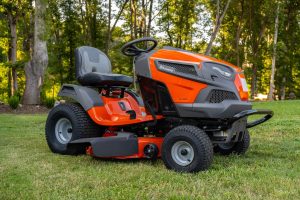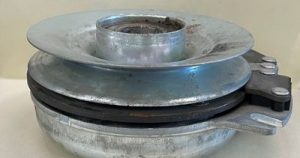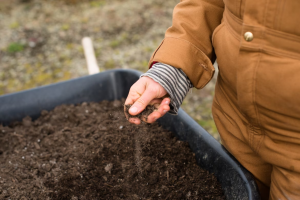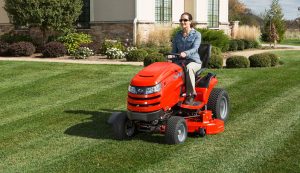Kubota B2400 Hst No Hydraulics – What & Why!
One of the most prevalent issues is the Kubota B2400 no hydraulics problem.
The issue is primarily brought on by contamination issues like oil leaks and water fills. Additionally, the performance of your hydraulics might be impacted by the environment. These are some of the most frequent causes of hydraulic failure in Kubota B2400s.
However, there is no need to fear because we will address the hydraulic complexity, issues, and solutions in this post.
Table of Contents
Kubota b2400 Hst No Hydraulics, Why?
| Problems | Fixes |
| Hydraulic leaks | Repair the oil and hydraulic cylinders’ punctures. |
| Seal failing | Check for bent hydraulic rods by taking the tractor to a repair. |
| Noise problems | Ensure sufficient lubrication and check for contaminants |
| Installation faults | Verify that the hardware is appropriate for the system. |
| Contamination problems | Check the hydraulic chamber for any air or water injections and fix them. |
We’ll talk about the causes of your Kubota hydraulics failing in this part. In the table above, we listed the potential causes. And we’ll work through these issues one at a time.
Mechanic Leaks
Both internal and external leaks are possible. One of the frequent causes of your hydraulics failing is hydraulic leakage. Additionally, it is simple to troubleshoot the symptoms. You’ll notice that the hydraulics are performing worse. Oil will be present on the hydraulics’ exterior if there is an oil leak. It is very distinguishable.
This issue also has a simple solution. Simply replacing the hydraulic valves will halt the leaks. Prior to turning the valves off, make an effort to remove all of the air from the hydraulics. Ensure that the valve is replaced if it has fully fallen. Otherwise, simply use a wrench to tighten it.
Seals not working
It does not occur as frequently as other hydraulic issues. However, if you operate a tractor frequently, you will experience the issue. The hydraulic pump’s seals regularly fail in this intricacy. Additionally, it is among the most serious issues. Additionally, fixing it is expensive.
It’s possible that the hydraulics are operating on a damaged rod, which would explain why seals fail. Another reason is misaligned rods. This issue cannot be resolved by you alone. When
When hydraulics are subjected to excessive pressure or loads that exceed their capability, their supporting rods become bent. And as a result, the seals begin to deteriorate.
Avoid attempting anything on your own. The only way to solve a problem is to check to see if the seals are still in place.
Take your tractor to the closest garage if they are broken, and inform the mechanic that your hydraulic seals are broken. Then they will confirm with you if the bent rod is to blame or if there is another cause. One of the negative implications of this issue is that most garages find it expensive to fix. Therefore, make every effort to reduce the cost.
Noise Issues
Your hydraulics may occasionally feel as though they are making strange noises. Already, it’s unusual for hydraulics to make noise. The purpose of hydraulics is to be silent. Your hydraulics’ noise is typically caused by leaks in the air and oil filters. Due to high pressure, the oil bottle may occasionally leak, lubricant entering your hydraulics.
Your hydraulics may also be creating noise because of a lubrication problem. Without lubricant, friction increases and noises increase. The entire hydraulics system may even become damaged in the lack of lubrication. Another factor contributing to the sound of hydraulics is a seal failing.
This issue can be easily fixed. Keep an eye on the condition of the hydraulics. When we say “check,” we mean to see if there is the right amount of lubrication or if the oil container is secure and not dripping anything.
Problems with contamination
As we have mentioned, pollution issues are the primary and most frequent causes of hydraulic failure. Hydraulic contamination mostly refers to water and air contamination. And these contaminations are the result of leakage. The hydraulic chamber may be damaged and leak frequently as a result of high pressure.
And this leak contaminates both the water and the air. The environment in which your hydraulic system is operating determines everything. Therefore, it is never a good idea to apply more pressure to the hydraulics than is advised. Water contamination can result from temperature fluctuations that accommodate humidity.
This issue also has an obvious remedy. Simply patch up the system’s leaks while ensuring that the hydraulics are operating properly and not under excessive pressure.
Installer Errors
Make sure you did everything correctly if you DIY with your tractor. because hydraulic equipment is delicate and can be destroyed by a single error. Installation issues are the most frequent.
It is suggested that a skilled mechanic handle the tractor installation operation. For instance, if the pump shaft is installed improperly, it will revolve in a completely different direction and result in more serious issues. Therefore, make every effort to seek assistance.
Read: We’ve Got the Kubota Loader Valve Diagram & More!
The hydraulics may occasionally become problematic as a result of poor maintenance. Containers can develop leaks just like oil can, and hydraulic leaks are also possible.
Therefore, it is important to constantly monitor how the hydraulics are functioning. Additionally, by doing this, your tractor’s hydraulics will operate more effectively and correctly.
FAQs
What horsepower does a Kubota B2400 have?
The Kubota b2400 is a small tractor made by Bobcat that has power of about 24 horsepower.
How is a tractor’s hydraulic pump primed?
You must first unplug the pump before filling the oil bottle. After that, plug it in once more.
How can air be removed from a tractor’s hydraulic system?
Raising the hydraulics temperature causes the air in the pump to be released, making this one of the simplest ways to do it.
Final Conclusion
There isn’t much to consider when it comes to the Kubota B2400 HST No Hydraulics issue. Additionally, you cannot escape hydraulic issues. Leaks, air pollution, and contaminated water are the most frequent causes. In addition, there are other significant issues. But we provided answers to every issue. Simply follow the instructions precisely to ensure that your tractor will live a long and healthy life.
Anything we had was set down from our basket. But occasionally, some information is missed. You can inform us about them to benefit the larger community. Until then, be content.







